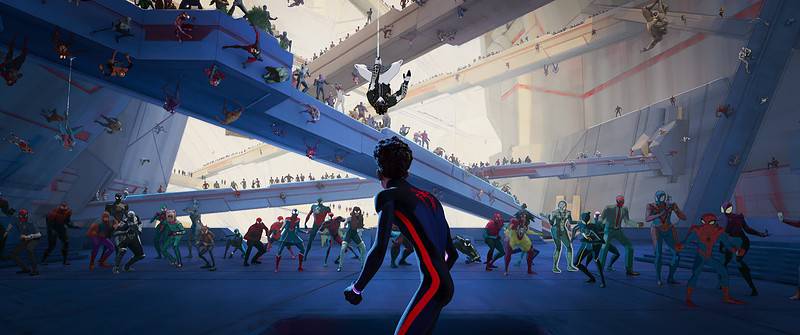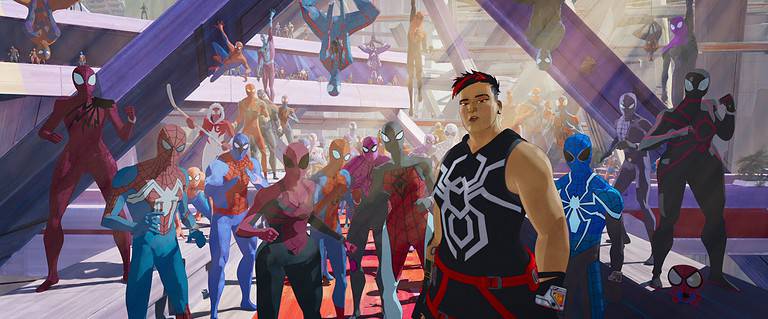The web of anticipation surrounding the premiere of Spider-Man: Across the Spider-Verse has finally been cut. Ahead of the premiere of the film on June 2, Sony lifted the review embargo on the movie and allowed critics to voice their verdicts.
Directed by the acclaimed trio of Kemp Powers, Justin K. Thompson, and Joaquim Dos Santos, with a script by Phil Lord, Christopher Miller, and David Callaham, the sequel had the unenviable task of living up to its Oscar-winning predecessor. Only time will tell if Across the Spider-Verse can snatch another Oscar award next year. In the meantime, critics, it seems, are once again, stuck in the Spider-Verse’s mesmerizing web.
The sequel continues Miles Morales’ (Shameik Moore) journey as his universe’s Spider-Man following the death of Peter Parker early in the first movie. Set years following the events of Into the Spider-Verse, the sequel expands the budding animated universe in both scope and depth.

Here’s what the critics have scored Across the Spider-Verse:
- GamesRadar+ – 5/5
- Empire – 5/5
- IGN – 8/10
- Screen Crush – 8/10
- Slash Film – 7.5/10
- Cultured Vultures – 5/10
Other critics like Variety’s Owen Gleiberman praised it for its brilliance, saying that it still has the “thrilling moment-to-moment logic” of Into the Spider-Verse. David Fear, writing for Rolling Stone, acknowledged the sequel’s “sheer panache” while IndieWire celebrated it as a “dazzling reminder of what superhero movies can be.”
It would’ve been easy for Across the Spider-Verse to lose audiences with its ambitious multiverse narrative as it sees Miles thrown into an increasingly unstable dimension filled with an elite supergroup of fellow Spider-People. But, the critics are quick to note that it has retained its authenticity and storytelling strengths. More importantly, the stylistic evolution and narrative focus on Miles’ identity as a hero stands out.
Critics are also hailing the journey of Miles and Gwen Stacy (Hailee Steinfeld) as relentless and exciting, even though the plot occasionally takes a step back to make way for the visual eye candy.

However, the film didn’t win all the critics over. While it’s certainly bigger and bolder, some found its two-part format a weakness and detracting from the overall narrative flow.
A common pain point of Across the Spider-Verse is how it feels less like a complete film, coming across as an unfinished chapter in a much larger story.
It can be worth noting that Across the Spider-Verse branched off from what was originally just a single larger film. It’s the first half of a two-part movie, the latter of which comes out next year.
Ultimately though, the few very valid negative comments about Across the Spider-Verse don’t deter it from overwhelmingly positive responses. At the time of writing, Across the Spider-Verse boasts a 94$ score on Rotten Tomatoes. It isn’t as high as the 97% of the original but the drop-off isn’t big either.

Despite some criticisms and reservations, Across the Spider-Verse is a worthy expansion of the Spider-Verse saga.
Perhaps, most important of all, it’s a big win for Sony, both financially and critically. It’s in a good position to win a future Oscar for Best Animated Feature while pulling in around half a billion at the global box office if not more.

